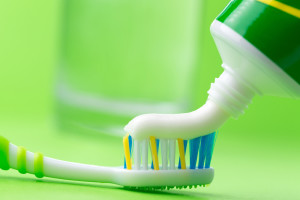 Were you aware that the baby teeth in your child’s smile are incredibly important in the development of the final smile? Although they eventually fall out, these teeth are essential for chewing food and speaking clearly. Additionally, primary teeth help guide adult teeth into place. Dr. Kenneth Egger is a Mount Pleasant, MI family dentist who provides patients with a wide selection of services, including education on how to properly care for your child’s teeth and ensure they start to have the beginning of a lifetime of beautiful, healthy smiles!
Were you aware that the baby teeth in your child’s smile are incredibly important in the development of the final smile? Although they eventually fall out, these teeth are essential for chewing food and speaking clearly. Additionally, primary teeth help guide adult teeth into place. Dr. Kenneth Egger is a Mount Pleasant, MI family dentist who provides patients with a wide selection of services, including education on how to properly care for your child’s teeth and ensure they start to have the beginning of a lifetime of beautiful, healthy smiles!
Why should I help my child take care of their baby teeth?
Many parents don’t realize just how essential baby teeth are in the development of their child’s smile. Baby teeth not only help your child chew food and speak clearly, but they also act as a placement guide for the permanent adult teeth. Additionally, primary teeth help your child’s jawbone stay healthy and strong.
What should I do if my child has a loose tooth?
If your child has a baby tooth that is loose, it’s best to have them see a dentist as soon as possible. Depending on the situation, the dentist may recommend waiting for the tooth to fall out naturally or removing it right away.
Will my child need to have any of their baby teeth removed?
In some cases, a baby tooth may need to be removed because it is severely damaged or decayed. If this is the case, your child will likely need a dental filling or crown to protect the adult tooth underneath.
Request a consultation visit and initial evaluation for your child today!
If you’re concerned about your child’s oral health, be sure to schedule an appointment with Dr. Kenneth Egger. He is a family dentist in the Mount Pleasant, MI area and helps parents understand the transition from baby teeth to permanent adult teeth. He can also assist parents of children in helping them build a proper foundation for better oral health and wellness. Call 989-773-3560 to request an appointment at the office and start learning more about how critical baby teeth are in your child’s oral hygiene and smile development journey!




 Since the new Star Wars movie is coming out soon, we may as well talk about lasers. But Dr. Egger’s lasers aren’t used for blasters or other space-age weapons. For us, the diode laser is used to treat various gum conditions.
Since the new Star Wars movie is coming out soon, we may as well talk about lasers. But Dr. Egger’s lasers aren’t used for blasters or other space-age weapons. For us, the diode laser is used to treat various gum conditions. While being Prince Charles or the King of Siam is all well and good, you don’t have to be from a royal bloodline to receive one of the most common dental tooth restorations, a
While being Prince Charles or the King of Siam is all well and good, you don’t have to be from a royal bloodline to receive one of the most common dental tooth restorations, a